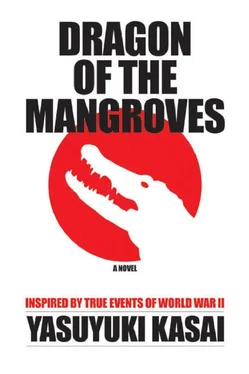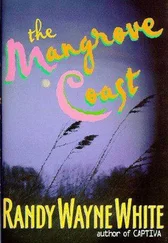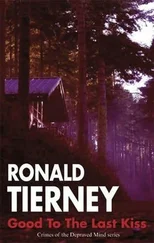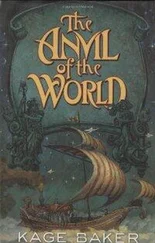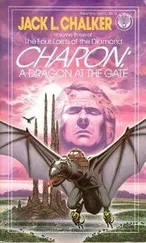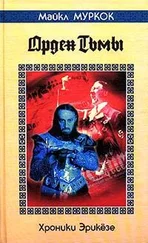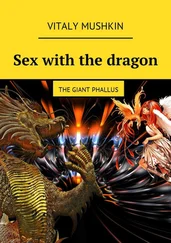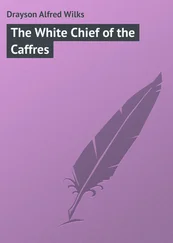“Yeah, I did. It’s hideous. I really didn’t know until now what a terrible place we’ve been thrown into,” Shimizu answered with a dry throat. His face showed obvious fright. The experienced stalwart of dauntless courage was not to be seen.
The other soldiers cowered as well.
A formidable carnivore lurked in the very water where they had taken strides a little while earlier. This was shocking enough to render them speechless.
The crocodile must have known the cow was approaching, and had been pre-cisely aiming at that animal. Otherwise, it couldn’t have overlooked the herd of prey straying stupidly into its territorial water. It was pure luck that they were all still alive.
After some time, each soldier stood up and timidly approached the creek, holding his gun at the ready. There were no remnants of the grisly event that had just occurred. All they saw was the dark water flowing slowly.
The sun set into the ridge of Hill 509, where the decisive battle had unfolded between the Twenty-sixth Indian Division and Ramree Garrison. Sumi let his party go through the wetlands, as soon as he made sure the sky was clear of enemy planes.
They had used the darkness to hide themselves from enemy eyes until then.
Now they all realized the same darkness was also keeping the uncanny carnivore lurking in ambush mode to catch a prey out of their sight. Sumi felt the surroundings were dangerous since he had seen the crocodile up close. He called Pondgi from the rear and asked him what he knew about crocodiles.
Pondgi told him a crocodile was a cold-blooded animal who disliked sudden changes of its body temperature. So it often laid in water at night and moved around, regardless of sheer darkness, because it was nocturnal. Therefore, it was especially dangerous to approach any waterside at night, Pondgi said.
Sumi knew that for the rest of the night, they couldn’t avoid the waterside. All members of the rescue party kept away from creeks as much as possible upon restarting the march. When they had no option but to cross, all their attention was focused upon it. They entered a creek one man at a time, while the others kept a close watch with their forefingers on the triggers, lest a crocodile should go at him at any moment.
Pondgi said the crocodile’s scaly back skin was so hard that it might resist pistol bullets. It was even doubtful if the Sten gun, having shown its potency at the encounter with the British, would be effective against a crocodile, to say nothing of Sumi’s Nambu fourteen. The only thing they could rely on was their rifle’s slightly better piercing ability.
Pondgi added that the eyes of crocodiles glow at night like cats’ eyes. Sumi searched over all the water surface with his one precious flashlight each time they entered water. A croc’s retinas apparently reflect incoming light and appear to glow red. If he turned the flashlight on near enemies, he would run the risk of being spotted easily. It might be suicide.
But the rows of sharp-pointed teeth seen earlier were more frightening than enemy bullets, so it seemed rather reasonable to search with a flashlight, despite the risk.
They made their way nervously across creeks, one after another, and came across a small settlement surrounded by tiny dry paddies. Roofs thatched by the leaves of nipa palm loomed in the darkness.
Sumi felt confident that it was Yanthitgyi, for he had checked it on his map many times during the journey. They had gotten to their destination. The time was well past midnight. He found the silhouette of a mountain that looked like Hill 604 in the northwestern night sky and felt strong.
Its folds were so intricate that even mountain guns couldn’t shell that hill easily. It was highly probable that the garrison had reset its position somewhere in that hill.
He heard no roar of cannons after sunset. It was likely that neither army had completed the build-up of troops yet. Sumi thought he could outwit any enemies who were busy assembling if he could find the garrison and evacuate it before the enemies resumed an offensive.
But a violent burst rose from an unexpected direction. It came from the east, the direction of Myinkhon Creek. Sumi thought it a mortar shell. It was incessant and showed no sign of stopping. This shelling was serious. No doubt it was from the enemy, because their friends couldn’t have such quantities of ammo now. The enemy was stamping out the Japanese. Considerable numbers of soldiers who had failed to cross the creek the night before probably roamed around adjacent mangroves and caught the fire helplessly.
Sumi immediately sent his troops to Myinkhon Creek. He had to get in touch with the friends, who were now under fire, to evacuate them somewhere safe as soon as possible. The enemy was so close now that he heard the discharging sound—like a high-pitched drumbeat—rising among the consecutive explosions.
Sumi saw the muzzle fires and promptly located the position of the enemy. An artillery unit of about three or four mortars was deployed around the dry paddy in front of him. Lit by star shells launched one after another, the crown of the mangrove was almost shining. The massive dose of flares led him to surmise that the enemy probably hadn’t located the Japanese position yet. Was it a reconnaissance in force, or an effort at intimidation? Had the friends hiding themselves in mangroves aroused the enemy somehow? He was seized by a complicated emotion, a mixture of expectation and impatience.
The rescue party went around the rear of the enemy position and plunged into the mangrove on the right. They pushed their way through the dense woods. Like the enemy, they didn’t know their friends’ position. They needed to get a wider view.
All of a sudden, a shell exploded just fifty meters ahead of Sumi, and he saw black shadows of branches and twigs ripped away by the blast dancing in the air.
He and his men hit the dirt. Sumi was terrified, expecting the next shell to come at any moment. But it didn’t come. The shot they had nearly caught might have been the last; the pounding seemed to have stopped at last.
Soon after they resumed rushing through the woods, their range of vision widened. Then a pitch-black waterway burst into view; it was Myinkhon Creek. If it was daytime, they would have been able to see the Burmese mainland far on the opposite bank, but now it was just endless darkness.
They found a thicket jutted out into the creek and plunged into it. Saltwater lapped against their shins. From the thicket, Sumi could look in both directions along the edge. He prudently hid himself behind one of tree trunks and resolutely commanded the others while keeping his attention on anything unnatural.
“They must be around here. Now divide up and search for them!” Sumi commanded the troops.
A star shell abruptly went up behind them again before he finished the last word. A dazzling luminosity almost like daylight shone all around, and dyed the foliage in a lively green. Sumi immediately took advantage of this opportunity to view his surroundings.
And he saw something he didn’t expect.
It was a large cluster of countless little lights floating on the surface—many pairs of red lights spread along the water’s edge. Though most drifted the creek slowly to the left, some didn’t move at all—near the rim of the very thicket where the rescue party hid, as if they were laying siege to it. Just when Sumi realized what those lights were, Pondgi sharply alerted him from behind. “Master Sumi. Watch out! Crocodiles are aiming at us!”
In a moment, the memory of the earlier horrific event returned to Sumi’s mind. He cowered on the spot, almost instinctively.
The star shell was burning itself out. Darkness began to reign over the creek again, and the cluster of lights encircling the thicket was also melting away into the dark surface. Sumi managed to suppress the fear welling up and shouted a command: “Prepare to fire!”
Читать дальше
